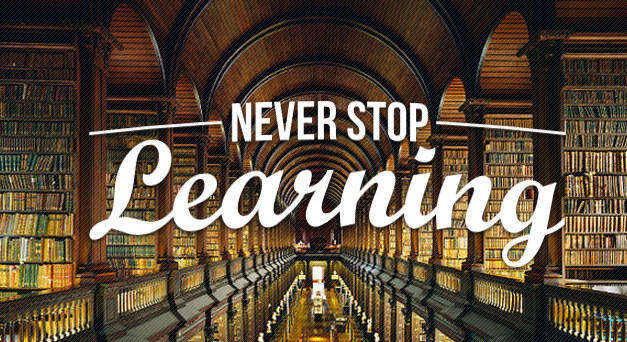Posts by Saga Briggs
How to Educate Yourself for the Future
In fact, a recent report from the Committee for Economic Development of Australia (CEDA) showed that 40 percent of jobs are in danger of becoming obsolete. This phenomenon is called the Law of Accelerating Change, and it’s not going to slow down anytime soon. The only thing we can do to prepare for such change is to learn how to adapt to, better yet anticipate, it.
Read MoreWhat Else Can We Teach Through Rhythm?
It’s Time for a Fresh Approach — Rhythm Can Help Rhythm is inextricably tied to language. The human heartbeat shares a time signature with one of the most universal linguistic patterns known to man, the iambic meter (“Shall-I com-PARE thee-TO a-SUM mer’s-DAY?â€). Speechwriters frequently use rhythm to their advantage, hoping to stir listeners with a…
Read MoreWhat Adaptive Technology is Teaching Us about Learning
We may have moved on from PowerPoint presentations to apps, but the communication gap between software developers and learning experts persists.
Read More30 Academic Resources on Learning – for Educators and Innovators
Many of us read blogs about learning and discuss the learning process with our colleagues, but few of us actually bother keeping up with the latest science. Maybe it’s because, if we do manage to identify a source or two, we are immediately turned off by all the dense scientific jargon. Or maybe it’s not always clear which resources provide information specifically on learning and not just education in general.
Read MoreNow-ism: Why Perfect Scores Don’t Matter And What To Focus On Instead
“Education is what people do to you; learning is what you do to yourself.†These are the wise words of Joi Ito, Director of the MIT Media Lab. In a recent TED Talk, Ito reveals a revolutionary style of innovation that he and his colleagues discovered during a time when they had to take learning into their own hands.
Read More12 Must Read Books on Education for 2015
Few things are more satisfying than finally getting your hands on a book you’ve been meaning to read. In 2015, you’re going to want to make room in your schedule for a lot of satisfaction.
Read More10 Most Powerful Uses of Technology for Learning
Regardless of whether you think every infant needs an iPad, I think we can all agree that technology has changed education for the better. Today’s learners now enjoy easier, more efficient access to information; opportunities for extended and mobile learning; the ability to give and receive immediate feedback; and greater motivation to learn and engage. But if we had to pick the top ten, most influential ways technology has transformed education, what would the list look like?
Read More15 Surprising Discoveries About Learning
What are some of the most encouraging known facts about learning? From taking a walk to learning a new language, there are countless things we can do to improve the way we learn. Below we list fifteen steps toward a better brain:
Read More16 Ways Your Brain Is Sabotaging Your Effort To Learn
Our own brains regularly deceive us in order to make sense of the world we live in. Our brain will tell us we’re smarter and better looking than everyone else, and that any fault brought to our attention should probably be blamed on someone else.The human brain is our best friend, and our worst enemy, and unless we keep one eye peeled, it can hijack our learning completely. In this article I’d like to examine some of the “traps†the brain sets for us during the course of our academic careers, and what we can do to avoid them.
Read More25 Practices That Foster Lifelong Learning
“I don’t divide the world into the weak and the strong, or the successes and the failures… I divide the world into learners and nonlearners.†– Benjamin Barber, sociologist Is your capacity for learning is fixed or fluid? Can you improve your intelligence and talents through hard work and practice, or are you stuck with…
Read More








